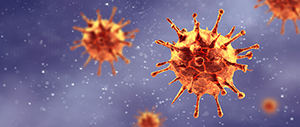
Photo credit: Getty
A special feature in JNCCN–Journal of the National Comprehensive Cancer Network by Ueda et al highlighted the unique circumstances and challenges of providing treatment to patients with cancer during the global COVID-19 pandemic.
Physicians from the Seattle Cancer Care Alliance, Fred Hutchinson Cancer Research Center, and the University of Washington—centers close to the first reported case of coronavirus in the United States (in Snohomish County, Washington), and close to one of the continued hotspots of the disease in the country—detail how through organizational structure, preparation, and agility, oncologists can continue to provide compassionate and safe care for their patients, as well as for themselves.
Recommendations
Be prepared to:
- Triage patients with respiratory symptoms to reduce exposure to other patients and staff
- Test symptomatic patients for COVID-19 upon entering the cancer center
- Form an “incident command” structure to centralize all information given to staff, patients, and the community.
When making treatment decisions:
- Establish a multilayer coverage system for the clinics in case providers have to be quarantined
- Reschedule all “well” visits for patients or transition them to telemedicine
- Increase the hours of operations and acute evaluation capabilities of the clinic to ensure that emergency departments and hospital resources are reserved for those absolutely requiring higher-level care.
When making treatment decisions for new patients or for those undergoing chemotherapy, for patients with solid tumors, adjuvant therapy with curative intent should proceed. For patients with metastatic disease, treatment delays may lead to worsening performance status. Considerations should include how such delays may lead to hospital admission for symptom palliation. Surgical intervention may need prioritization. For example, several months of endocrine therapy and delay in surgery may be appropriate for some patients with early-stage hormone receptor–positive breast cancer. Patients with aggressive hematologic malignancies may have greater urgency for life-saving treatment. Therapies such as stem cell transplantation and cellular immunotherapies provide curative treatments and usually cannot be delayed. Enrollment into clinical trials will have to be limited to those who are most likely to benefit from the investigative treatment.
Ethical Considerations
Ethical considerations include that beyond the care of the individual patient, oncology clinicians will face the heavy reality of rationing health care. If a patient with late-stage disease or with comorbid health conditions, such as heart or lung dysfunction, acquires COVID-19 and requires mechanical ventilation, the prognosis is likely to be dismal. The study authors believe that it is imperative to have proactive end-of-life and palliative discussions with patients who may become infected with COVID-19. With dwindling resources, oncologists must consider the treatments that are most likely to be successful, symptom-relieving, or life-saving, and consider those patients likely to benefit the most. Proactive discussions surrounding these challenging decisions should occur among disease-specific groups, medical ethicists, and members of the palliative care team.
Preparation
Practicing social distancing and edicts from federal and state governments for people to remain at home is resulting in blood donation shortages, necessitating stricter adherence to and consideration of lowering thresholds for transfusion. Shortages from the increased consumption of personal protective equipment is requiring the development of creative solutions to conserve personal protective equipment, including favoring the use of soap and water for handwashing instead of gel use in standard precaution rooms, limiting the number of team members entering patients’ rooms, and reducing personal protective equipment–requiring nursing procedures, such as the measurement of urine output.
The emotional toll on oncology providers as the COVID-19 pandemic spreads could result in provider burnout and requires proactive attention to protect the health of the clinical staff. Reassignment of clinical duties to administrative roles should be considered for staff who are immunocompromised or have significant comorbidities that put them at increased risk for contracting the coronavirus. To ensure needed down time and rest, the study authors suggest that the leadership of Hospital Incident Command Systems shift every 2 weeks to ensure needed downtime and rest.
Looking Ahead
Although the future trajectory of the COVID-19 pandemic is uncertain, “we must continue to prepare for widespread impact,” according to the study authors. “The overarching goal, however, is to continue to provide compassionate, safe care for our patients with cancer…To many of us, this has become the health-care challenge of our generation, one that modern cancer therapy has never had to face. We will prevail, and when the pandemic ends, we will all be proud of what we did for our patients and each other in this critical moment for humanity,” concluded the study authors.
Masumi Ueda, MD, MA, of the Fred Hutchinson Cancer Research Center, is the corresponding author of this special feature.
Disclosure: For full disclosures of the study authors, visit jnccn.org.

